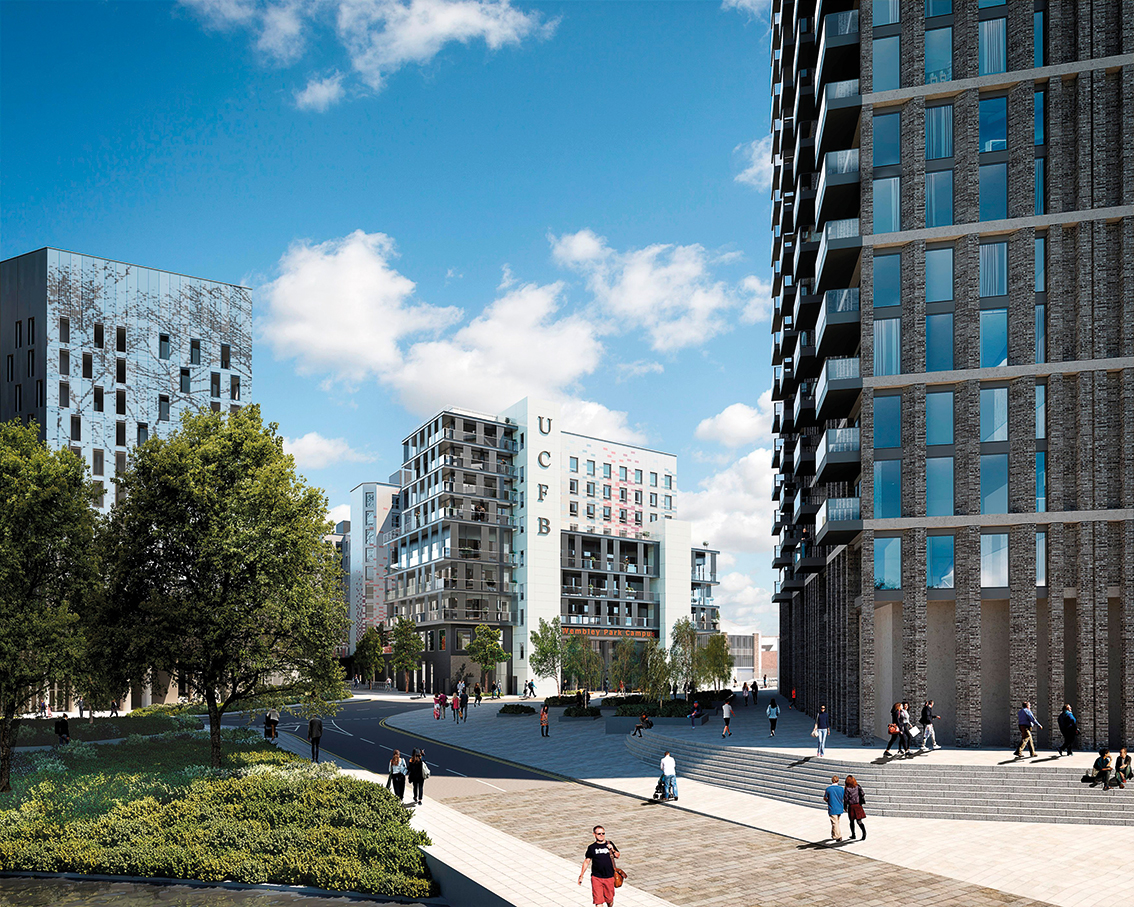
Given the unprecedented challenges of the last 12 months, 2021 will be a defining year for volumetric modular construction, says Andy Smith, Caledonian’s head of business development.
UNSURPRISINGLY, the pandemic has had a significant impact on conventional on-site construction and although the government allowed construction work to continue where possible, it has often proved easier said than done.
An issue common to most sites during the lockdown is disruption to the supply chain as they too have had to follow government restrictions or struggled to maintain their workforce. The effects of this were compounded because most construction projects are unable to hold much stock on site due to space and safety restrictions. Supply chain and on-site restrictions regrettably lead to many on-site activities being curtailed or temporarily suspended.
Covid-19 continues to impact the construction sector, with projects facing delayed planning and implementing new measures to ensure the health and safety of their workforce.
It’s one of the reasons why more project teams are turning to offsite construction, not least because it reduces reliance on labour, so yielding greater productivity. It also reduces congestion on sites because there are fewer deliveries – modules with 90 per cent of work are now routinely delivered to site.
The cost benefits of modular and offsite make it a convincing proposition with up to 40 per cent savings – mainly because the construction schedule can be cut by up to a half compared to an on-site build. Greater cost certainty resonates with many developers, whilst higher productivity and fewer defects contribute to quality builds. Waste on site is also cut by 90 per cent according to WRAP (Waste and Resources Action Programme). At the same time, there are significant reductions in on-site labour, with all the associated health and safety benefits – a critical advantage in these times of social distancing.
All these benefits mean earlier occupation and a quicker return on investment, which will be critical to the leisure sector’s recovery.
The benefits of volumetric modular construction are especially pronounced in the leisure sector where modules can be stacked to create buildings up to 30 storeys. This offers wider scope for designers, for example, retail and leisure units on the ground floor, residential accommodation in the mid-levels and restaurants on the top floors.
Offsite construction of entire buildings is currently not being used to its full effectiveness, despite being eminently possible, even desirable. Experience tells us that it would allow sites to become more efficient and ensure workers are socially distancing in the production units should there be a future lockdown.
Long term plans to cushion the workplace and the construction sector are needed as we move beyond the current pandemic. Greater use of volumetric construction allows products to be made in safe factory conditions with more robust supply chains, transported to site and installed using fewer operatives. Although the events of the last 12 months were unprecedented it’s almost impossible to predict what a new normal will look like. However, it presents an opportunity to redefine strategies and choose a construction solution that offers greater resilience to any future pandemics.
As such, demand for offsite construction will increase, with considerable growth in key areas such as leisure where modules that connect multiple units to create one structure provide greater scope for designers and significantly more predictable and efficient project delivery.
